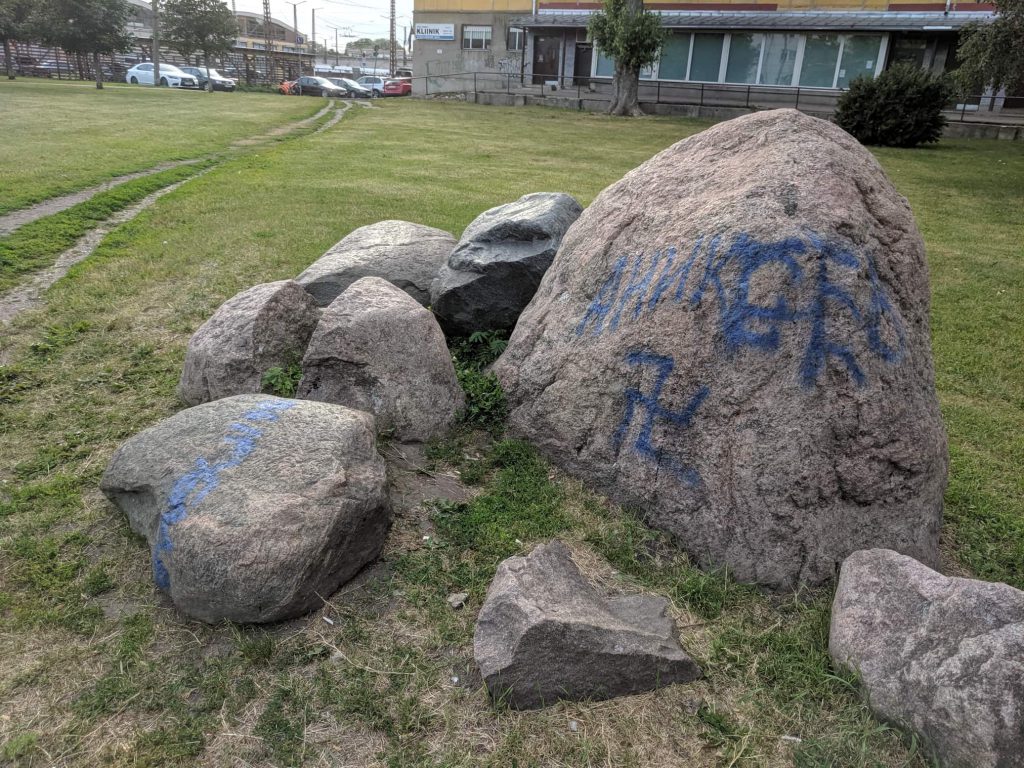For the small Estonian Jewish community, times have been peaceful – but recent anti-Semitic acts are a reason for concern.
Over the weekend of 22-23 June, several headstones at the 110-year old Rahumäe Jewish cemetery in the Estonian capital, Tallinn, were knocked over. On 23 June, swastikas were spray-painted on large stones by the Lille bus stop in Tallinn’s Kristiine district.
“On 23 June, when all of Estonia celebrated the 100th anniversary of the victory of Estonian troops over the Baltic Landeswehr (Baltic German troops during the Estonian War of Independence – editor) near Võnnu, there were two extremely outrageous incidents in Tallinn,” the Jewish Community of Estonia wrote on its Facebook page on 24 June.
“This monstrous act of vandalism at a place where our ancestors rest in peace, where every human being thinks about spirituality, their connection to past generations and human values, is offensive, frightening and unacceptable in our society,” the Estonian Jewish Community and the Estonian Jewish Congregation said in a statement.
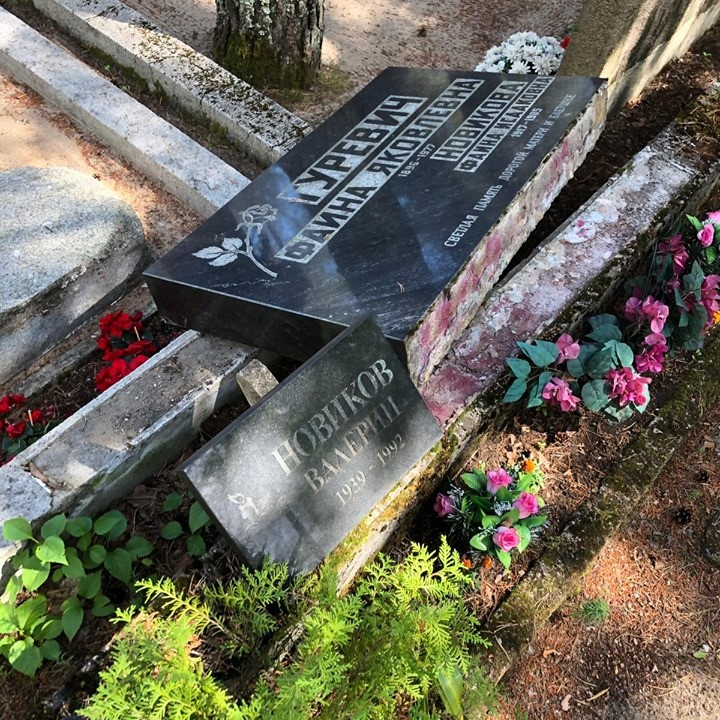
The community added that the act of vandalism was the first at the Jewish cemetery – it was not defiled even during the Nazi occupation of Estonia (from 1941-1944 – editor).
According to Alla Jakobson, the chairwoman of the Estonian Jewish Community, it is hard to believe that these malicious actions were organised specifically during the holidays in Estonia (when the country celebrates Victory Day, Midsummer Eve and Midsummer Day – or St John’s Day). “It is hoped that it was just a very unfortunate coincidence,” she said in a statement.
“We honour the memory of the deceased and would like society to show understanding and mutual respect for the memory of the people who lost their ancestors in that country. I am convinced the [police] investigation will identify those whose behaviour caused sorrow and pain,” Jakobson added.
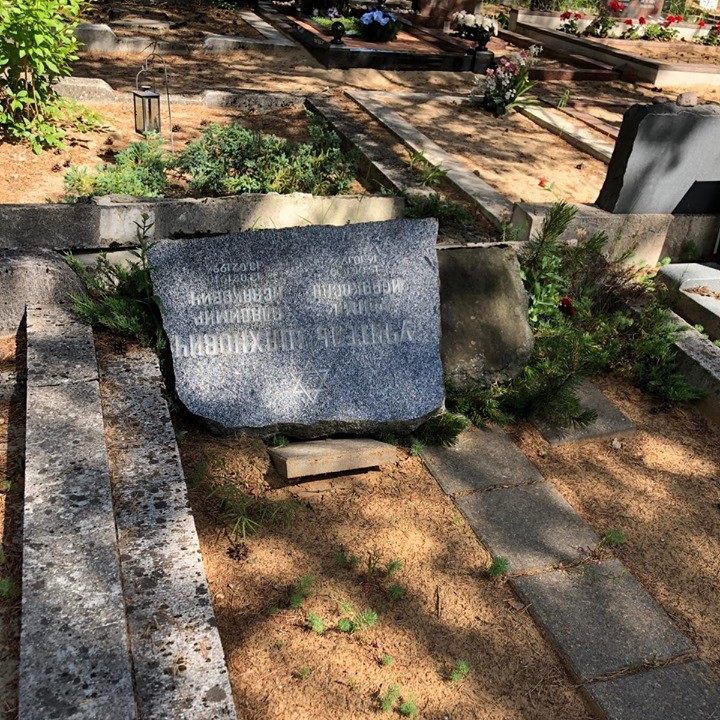
The Jewish Community of Estonia added that “such acts of vandalism and the spray-painted swastikas in public places are a direct reference to the tragic [historical] events. We hope [these events] will never happen again. Not in Estonia, or in any other country.”
Several incidents in a row causing a concern
The latest anti-Semitic acts follow the incident in March, when a 27-year-old Estonian man aggressively shouted at the country’s Chief Rabbi, Shmuel Kot, on the street: “What are you staring at, Jew? You’re going into the oven.” The man also shouted “Sieg Heil” and “Heil Hitler” at Kot while the rabbi was walking to Tallinn’s synagogue with two of his children, aged seven and 12. The police later identified the abuser, arrested him – and he was sentenced to eight days in prison.
According to Kot, this kind of an incident was the first time two of his children had witnessed any such harassment.
In August 2018, unidentified individuals vandalised the Holocaust memorials at Kalevi-Liiva in Estonia’s Harju County. Thousands of Jews perished there during the Nazi occupation of Estonia, from 1941-1944. The memorials were spray-painted with swastikas, anti-Semitic and Nazi messages.
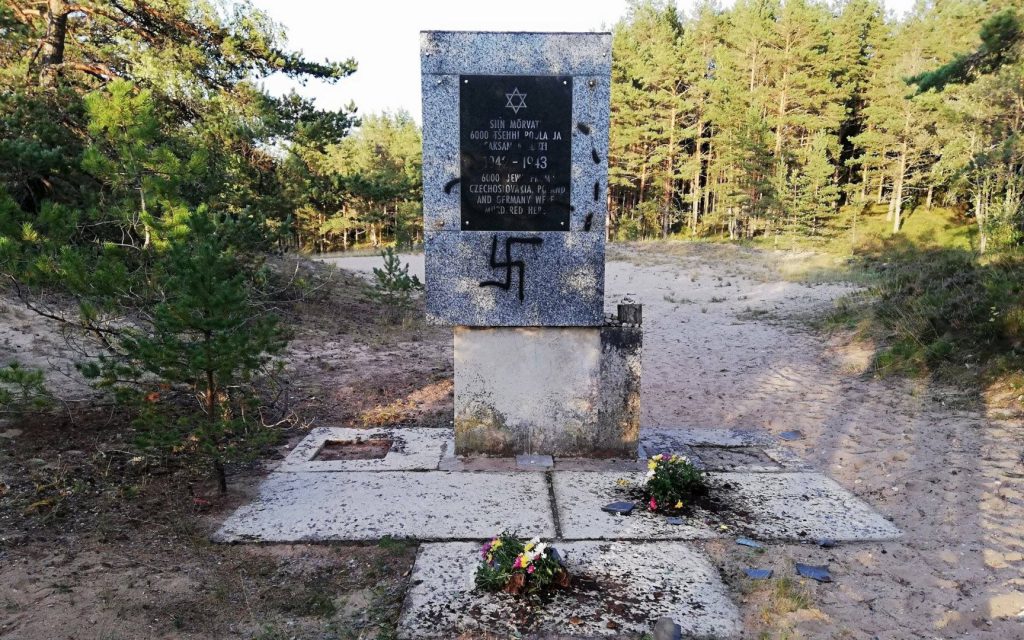
In 2016, when Estonian World spoke to Rabbi Kot, he told us Estonia was a very peaceful, calm and good country for Jews. Therefore, the latest developments cause a serious concern – and in the light of far-right gains in the last parliamentary election in March, beg the question whether an anti-Semitic sentiment is on the rise in Estonia.
A troubled history, but mostly tolerant country for Jews
Like many European countries, Estonia may have had a fair bit of troubled history with anti-Semitism, but for the most part of its existence, it has been regarded as a tolerant country for Jews.
From the very first days of its existence as a state in 1918, Estonia showed tolerance towards all the peoples inhabiting her territories. In 1925, the Act of Cultural Autonomy for Ethnic Minorities was enacted in Estonia, giving minority groups consisting of at least 3,000 individuals the right of self-determination in cultural matters. Thus, in 1926, the Jewish cultural autonomy was declared – first of its kind in the world. For its tolerant policy towards Jews, even a page was dedicated to the Republic of Estonia in the Golden Book of the Jewish National Fund in 1927.
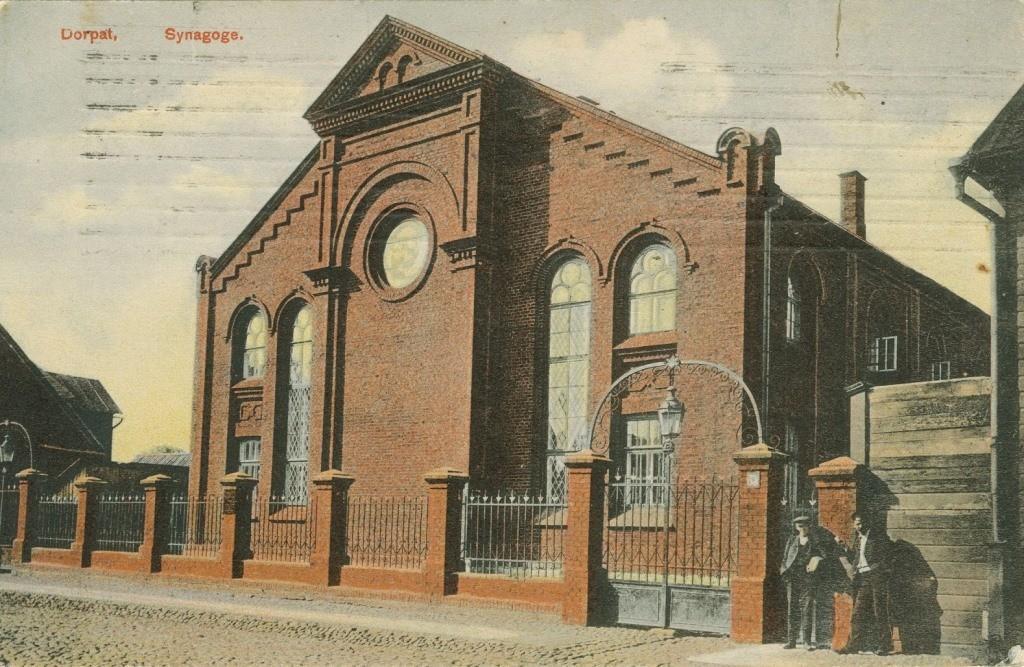
Sadly, the history took a wrong turn. With the Soviet occupation of Estonia in 1940, Jewish cultural autonomy, in addition to the activities of Jewish organisations, was terminated. All Jewish schools were closed and 414 Estonian Jews (10 per cent of the Jewish community) were deported to Siberia in the course of the mass deportations of June 1941.
Worse was to come. During the German occupation, the Nazis murdered approximately 1,000 Jews who had failed to flee Estonia (most had escaped to the Soviet Union before the Nazi occupation). In addition, about 10,000 Jews were transported to Nazi concentration camps in Estonia from other parts of Europe. Only a handful of them survived.
During the second Soviet occupation (1944–1991), many Jews migrated to Estonia again to escape the anti-Semitism prevalent in many parts of the Soviet Union. After the restoration of Estonia’s independence in 1991, the local Jewish cultural life was reinvigorated again and the community of about 2,500 people has generally thrived since. In 2007, a new synagogue was opened in Tallinn – the first synagogue to open in Estonia since the Second World War.

Let’s keep Estonia an educated and tolerant country
This publication calls the Estonian society and institutions to take the anti-Semitic incidents seriously – it’s important to tackle the hatred and prejudice and cut it at its roots. More education is needed about the Holocaust – there is sadly still too much ignorance and denial about the genocide that also took place in Estonia, among many European countries.
The local media – and especially the country’s public broadcasting, ERR – could also highlight the positive contribution of thousands of Estonian Jews throughout the history, which has benefitted not just Estonia, but also the world. From Louis Kahn to Eri Klas, from Yuri Lotman to Eino Baskin, many Estonian Jews have made Estonia and the world a better place.
Until recently, Estonia stood out positively as a place where Jews could live in peace and thrive – let’s keep it that way.
Cover: On 23 June, swastikas were spray-painted on large stones by the Lille bus stop in Tallinn’s Kristiine district.

